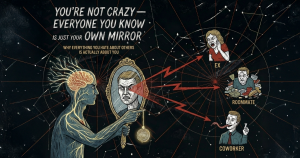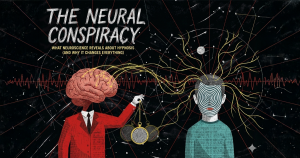If we’re being honest, it’s very upsetting to hypnotherapists when people muddy the waters between stage hypnosis and hypnotherapy simply because they are apples and oranges. The reality is, these are two completely dissimilar practices with fundamentally different applications, objectives and ethical considerations. In actuality, stage hypnosis is most comparable to a theatre production or sorts, as it is primarily intended for entertainment purposes and performed in front of a live audience. Hypnotherapy, on the other hand, is a therapeutic modality implemented in a private setting, aimed at amending certain behavioral or medical issues. It is unfortunate that for a vast majority of people, their perception of therapeutic hypnosis is deeply impacted by their exposure to stage hypnosis. Here are some ways in which stage hypnosis may impact the public perception of hypnotherapy:
Positive Impacts & Educational Opportunities
- Increased Awareness: Stage hypnosis brings awareness to the hypno-therapeutic modality, especially to those who have never heard of the practice before. Though stage hypnosis is not an accurate depiction of hypnosis, the exposure alone can inspire people to conduct their own research and enlighten themselves in a way that is educationally sound.
- Positive Representations: Context is very important to consider, so if the stage hypnotist gives the audience a somewhat realistic idea of what hypnosis really is, this can foster a more genuine portrayal of what hypnotherapy is about.
- Tool to Educate: Instead of succumbing to the more performative aspects of stage hypnosis, these experiences could be used as platforms for spreading knowledge and educating those who are unfamiliar with hypnotherapy in general.
- Promoting Responsible Representation: Stage hypnosis doesn’t have to be all smoke and mirrors, stage hypnotists can easily incorporate accurate representations of hypnotherapy by either inviting a real hypnotherapist to speak in a collaborative effort to inform audiences or by implementing real examples of the practice into the performance. Both of these approaches aim to build public trust as well as enlighten them.
Negative Impacts:
- Misconceptions: Being that stage hypnosis is meant to provide entertainment value, there will be significant emphasis of dramatization of techniques in order to spark a reaction from audience members. Naturally, this will lead to many misconceptions and false ideals being formed about hypnosis, as there is nothing dramatic or over-the-top about partaking in hypnotherapy practice. Again, hypnosis simply a guided, deep, meditative state.
- Skepticism: Many people judge hypnotherapy through a lens of skepticism due to the theatrics being implemented on stage for entertainment purposes. When the legitimacy of the modality is compromised in this artificial way, it’s impossible for people to take hypnosis seriously. This unfortunate reality is detrimental to the hundreds of thousands of educated hypnotherapists who have studied and mastered the practice with the intention of helping others overcome obstacles and adversities they are facing in life.
- Ethical Concerns: The exploitation and manipulation of the participants in stage hypnosis raises huge ethical concerns, especially if it leads the public to believe that hypnosis is about mind-control.














